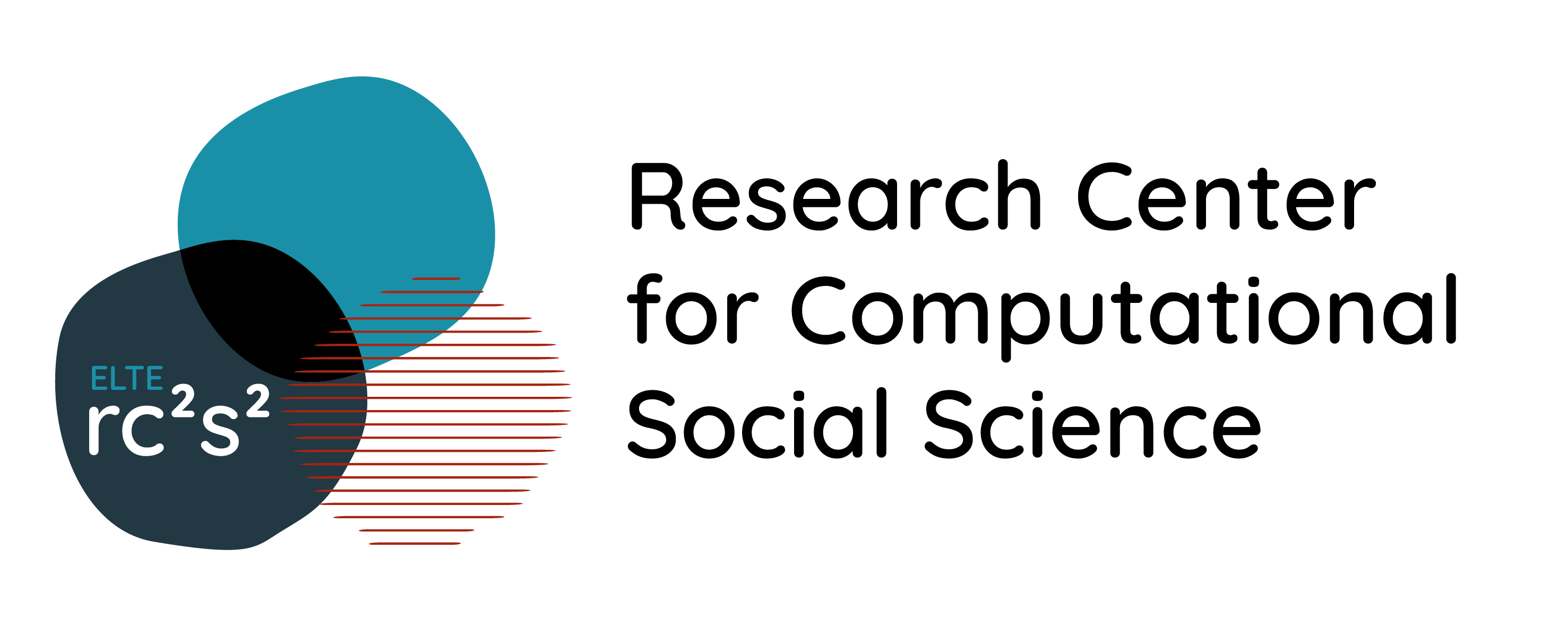One of the challenges of applying data analytics in sociology is the institutionalization of data science outside of sociology, as the former expertise of sociology was based on its own method of research. Another challenge is epistemological in nature, relates to the noisiness and validity of digital data, and the question of explanation/causation, which is highly important for sociology. These challenges give the background of the tension between the Big Data based, social-related findings and the sociological skepticism questioning the potential of this knowledge-production. The challenges can be solved through the redefinition of the research methodological basis of sociology, by the organic incorporation of data science know-how to its own methods. The solution also needs the combined application of qualitative and quantitative analysis motives, and the use of knowledge-driven science instead of the data-driven approach.
Foregoing results
Our research stream is motivated by a continuously growing social science interest in data science. As an example, see the case of automated text analytics: the following figure shows that the popularity of automated text analytics has been continuously growing in recent years in general and also in each discipline investigated (to access publication data we used Dimensions, https://dimensions.ai). Each trend line is growing persistently even after normalizing for the total number of publications in the discipline. The topic’s percentage portion in sociology increased faster than in sciences in general. In summary, automated text analytics is becoming an increasingly recognized approach in sociology.

Related Results
Two members of our research center took part in the 10. International Conference on Computational Social Science (IC2S2) in Philadelphia, USA, which is organized by the University of Pennsylvania between 17-20th of July.
View Result
Details
The book "The Sociological Possibilities of Automated Text Processing" by Renáta Németh is published and available as an e-learning material by Savaria University Press. The book presents the increasingly popular "text as data" approach of recent years, allowing insight into the sociological applications of natural language processing through research conducted [...]
View Result
Details
Ákos Szigeti’s (NKE) report has been published about the workshop examining the sociological perspective of data mining. Ildikó Barna, Renáta Németh (opening lecture) and Domonkos Sik participated from us; the workshop was the Módszeresen series’ ninth episode, the series’ main organizer is Renáta Németh.
View Result
Details
One our researchers, Renáta Németh has gotten her paper published in the special issue of the journal Metszetek. Renáta examines the feature of controlled machine learning which requires human coding – touching upon ethical questions of crowdsourcing platforms, teachability of hermeneutically more complex terms, or the distortion of AI, the [...]
View Result
Details
In our paper, we present an overview of Natural Language Processing (NLP) methods, which developed parallel with the spread of ‘Big Data’ paradigm. We present the most promising methods for social sciences, the specific research questions they can answer and the methodological features that distinguish them from classic quantitative methods. [...]
View Result
Details
In our work, based on recent research reports, we discuss the advances, challenges and opportunities of Big Data text analytics in sociology. The advances include the utilization of the originally and primarily business and technology-oriented development of information technology, data science, AI and NLP; and also, the rapid growth of [...]
View Result
Details
Bárdits, Anna, Németh, Renáta (2017): The rite of statistical significance testing – contemporary critics; the rite in sociology. Szociológiai Szemle, 27:(1) pp. 119-125. (in Hung.) Bárdits, Anna, Németh, Renáta, Terplán, Győző (2016): An old problem in the spotlight again. The mistaken practice of the null-hypothesis significance test. (in Hung.) Statistical [...]
View Result
Details
The presentation gave an overview of methodological paradigm of “Big Data” and its relation to classic statistics. The debate concerned the problem’s relevance from a biostatistical point of view.
View Result
Details

